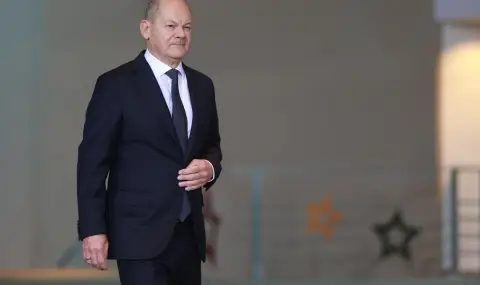German Chancellor Olaf Scholz is facing a vote of confidence in the German parliament today, which he is expected to lose. This will pave the way for early elections in February, BTA reports.
The three-party coalition government led by Scholz collapsed on November 6 when the chancellor fired his finance minister after prolonged disputes over measures to stimulate the German economy. After the dismissal, the ministerial political force left the coalition.
Need for a vote of confidence and elections
The German constitution does not allow the lower house of parliament to dissolve itself, so a vote of confidence is needed to proceed to early elections. After the government coalition collapsed, the leaders of Germany's main parties agreed that the election should be held on February 23 - seven months earlier than originally planned.
How will the vote be held
Scholz's Social Democrats have 207 seats in the Bundestag and are expected to support the chancellor in the vote. Their coalition partners, the Greens, have 117 MPs and are likely to abstain. This suggests that Scholz is unlikely to muster the 367-vote majority in the 733-seat chamber that he needs to successfully pass a confidence vote.
What happens if he loses the vote
If Scholz loses the confidence vote, President Frank-Walter Steinmeier will have to decide whether to dissolve the Bundestag. Steinmeier has 21 days to announce his decision. In the event of a dissolution of parliament, elections must be held within 60 days.
The economic situation and political challenges
In his speech at the request for a vote of confidence on Wednesday, Olaf Scholz stressed that voters must decide how the country will respond to fundamental issues. These issues include investing in Germany's future, preserving jobs, modernizing industry and ensuring pension stability.
In addition, Scholz stressed the need to seek a "just peace in Ukraine without Germany being drawn into the war". He recalled that the country is the largest military supplier to Ukraine in Europe, but has refused to send "Taurus" missiles due to fears of an escalation of the conflict.
Overview of the political situation and the opposition
Opinion polls show that Scholz's party faces strong competition from the main opposition CDU/CSU bloc of Friedrich Merz. Among the candidates for chancellor is Vice Chancellor Robert Habeck of the Greens. The far-right Alternative for Germany party is also showing strong performance in opinion polls, but no other party is willing to work with them because of their radical positions. The party has nominated Alice Weidel as its candidate for chancellor, but she has no chance of getting the job.
